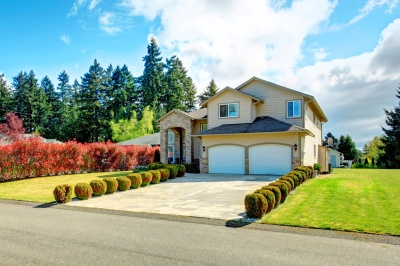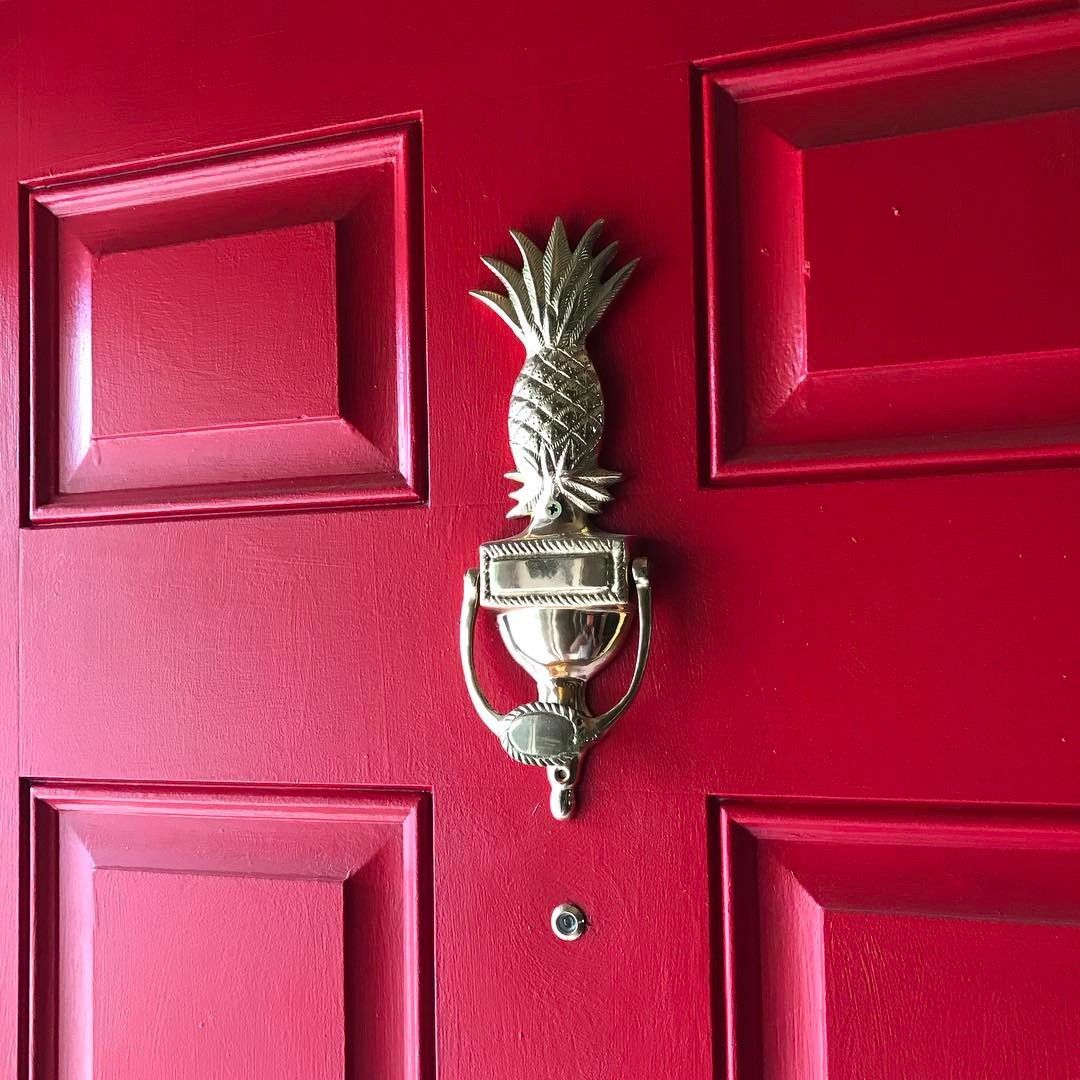

Mortgage forbearance provided a lifeline for many homeowners during the COVID-19 pandemic. In February 2021, according to an article on Forbes.com, 2.7 million homeowners were enrolled in forbearance plans.
A forbearance plan is an agreement that allows homeowners experiencing a temporary hardship to make a reduced mortgage payment (or no payment at all) during the plan’s term. Someone who received forbearance, will eventually have to repay any amounts not paid during the plan.
This past year we’ve seen many extensions on mortgage forbearance plans to help homeowners in distress. In March, the FHA gave qualifying borrowers three more months of forbearance which meant homeowners had until June 30th to exit.
According to Mortgage Bankers Association (MBA), data through March 28, 201 shows that 48.9% of homeowners who have left forbearance were current on their mortgage payments.
Now, with forbearance periods coming to an end, some homeowners are confused about how they’ll be required to pay back the amounts not paid. However, with after-forbearance options in place, homeowners have options to help get them back on track.
Your mortgage servicer (the company to which you make your mortgage payments to) should contact you about 30 days before your forbearance ends to discuss options. Be honest. Let them know what your current situation looks like so they can help you come up with the best financial game plan. If you haven’t heard from your servicer, take the initiative to reach out as soon as possible. Be patient as you may expect some delays.
Repayment Options
- Reinstatement: This option allows you to pay off the forbearance amount all at once if you’re able to.
- Repayment: Pay off forbearance amount over time by adding some of the amount you owe to your normal monthly payments.
- Covid-19 Payment Deferral: Add the missed amount to the end of your mortgage term. If you sell or refinance your home before that, then they payment is due at closing.
- Modification: If your hardship is permanent, you may be eligible to change your loan terms to make payments affordable. You may need to show that you can make the new payment for a trial period.
- Extend Forbearance: Under the CARES Act, if hardship continues discuss extending the forbearance with your mortgage servicer.
The right repayment option will depend of your current financial situation, job status, and ability to resume your monthly mortgage payments. When you contact your mortgage servicer, you’ll be able to discuss each option and find the one that best fits your current situation.
Let’s take a look at a few other options.
Refinancing After Forbearance
Typically, you will not be able to refinance after forbearance right away. For most loan types, you’ll need to have made at least three consecutive payments after exiting forbearance in order to be eligible. If you can lock in a lower interest rate and monthly payment, you may be able to make your mortgage payments more affordable.
Selling Your Home
The housing market is hot right now and if you’re willing to make a move this may be a good option.
Depending on how much equity you’ve built up, you may be able to sell your current house and use that equity to pay off the existing mortgage or you could use that money for a down payment on a less expensive house.
According to a recent CoreLogic Home Equity Report, the average equity of mortgaged homes is currently $204,000 and on top of that 38% of homes do not have a mortgage, so the level of equity available to today’s homeowners is significant.
What are the benefits of selling your home while in forbearance?
- You can take advantage of rising home values
- You can pay off your current loan early, along with extra payments you owe for forbearance and make a profit!
- Ability to upgrade or downsize to a new home
- Maintain a good credit standing
- Pay off any other debt or create a cash cushion if possible
Buying a New Home
Having been in mortgage forbearance should not keep you from buying a new home down the road. However, the rules for buying a new home are similar to refinancing and you’ll still have to meet the basic mortgage requirements.
Bottom Line:
Mortgage forbearance may be coming to an end for some, but there are options. Whether you’re ready to start making payments or need an extension you’ll have to speak with your mortgage servicer to come up with a plan you’re most comfortable with.

If you’re in the market to buy a home in the coming months, you may already have discovered that the competition is tight and the inventory is low in many areas of the country.
This housing shortage is the result of a few key factors according to Gay Cororaton, senior economist and the director of housing and commercial research at the National Association of Realtors (NAR).
With less than a 2-month supply of homes for sale on the market, the inventory in January 2021 fell nearly 26 percent compared with January 2020, NAR reports.
“All in all we’re short now about 3 million homes,” Cororaton said. “That’s a lot of homes to catch up on.”
(Source: BankRate.com)
However, there are several things you can do to increase your opportunities, even in this current market. It all comes down to being prepared.
- Get pre-approved before you shop for a home
- Working with your lender at Greenway Mortgage before you go shopping can save you time, heart-ache and head-ache.
- When a home is still occupied by the sellers, they sometimes only allow showings from pre-approved buyers to minimize traffic. Sellers can be assured that only serious buyers who are ready to make an offer come and view their home.
- A pre-approval gives confidence to the real estate agent(s) you are working with so that they can show you homes in the right price range.
- Buy a fixer-upper
- With a market that has low inventory, sometimes getting a fixer-upper can be a great move to make, and to sweeten the deal you get to put your own touches into it.
- Learn more about Renovation Loans here
- Work with a licensed real-estate agent
- If you’re looking to buy your dream home in a market with low inventory it’s important to have a licensed real estate agent by your side to guide you through the process
- Be ready to move
- Real estate markets with low inventory can turn over quick! Most buyers and sellers have contingencies on other contracts that restrict the amount of time before they can close.
- The average contract length is shorter and requires you as a buyer, to be ready to move quickly.
- Start packing and researching your moving options early in the process, so the moving process is as seamless as possible once you’re under contract.
- Avoid shopping at the top of our budget
- In low inventory markets, houses tend to sell over asking price due to competition amongst buyers. Therefore, it is wise to stay away from homes that are at the absolute top of your price range.
It may seem daunting, but by following these tips to be prepared you will position yourself to navigate the home buying market with confidence and peace of mind.
If you’re looking for more guidance as you start your home search, head over here to read 5 Tips For Starting Your Home Search, reach out to us by clicking here or give us a call at: 888-616-9885.

Whether it’s a quick refresh or getting your house ready to be listed for sale, making changes doesn't have to be a big project, sometimes simple updates can go a long way.
Here are 5 ways you can add curb appeal to your home without breaking the bank.
1. Front Door Refresh
2. Planting a tree or adding flower boxes
3. Add potted plants for symmetry
4. Upgrade your mailbox
5. Adding furniture

#1 | Brighten up the outside of your home by adding some color to your door. This simple trick helps draw people in and creates that “standout” factor. Not only will this be inviting for guests but can also help them easily find you and they will instantly feel welcomed.
#2 | We all know a house or two in our neighborhood that makes us stop and stare because of how beautiful their tree or flower boxes look from afar. What if that house was yours? Nothing ties in the outside of a home better than an arrangement of tree or a couple of flower boxes.

#3 | If trees and flower boxes are too big of a change, perhaps adding potted plants on either side of your door can help do the trick. This creates symmetry between the two sides and the illusion of formality and a wider entryway.
#4 | When it comes to creating curb appeal, the last thing on your mind might be upgrading your mailbox, but this is a simple yet effective way to do just that. Adding a little character and charm can be as simple as changing out that old mailbox for a new one.

#5 | Adding furniture is another great way to create curb appeal. Not only does this make the front of your home look amazing, but on those warm days, you can take refuge right in front of your home.
Any or all of these additions can make for a fun project that will add value and create a home you're proud of.
.png&q=95&w=400)
June is National Homeownership Month and Greenway Mortgage is celebrating all month long.
For many generations, owning a home has been a source of pride and security. In fact, it has always been considered a major part of the American Dream. From rural counties to bustling cities, owning a home offers an opportunity to lay down roots, start a family and embark on new beginnings. And now, more than ever, our homes have become an integral part of our lives. With millions of people stuck in their homes this past year, the pandemic has definitely changed the meaning and the experience of “home”. They’re much more than the houses we live in. They’re our workplaces, virtual schools, and safe havens that have provided shelter, stability, and protection.
Even with a new perspective on homeownership, the benefits that it brings to families, neighborhoods, and communities across America have not.
How It All Started
National Homeownership Month started as a week-long celebration of homeownership during the Clinton administration in 1995. In 2002, President George W. Bush proclaimed June as the National Homeownership Month. Today, the mortgage industry continues the message of helping people realize the dream of responsible homeownership.
Non-Financial Benefits
Owning a home brings families a sense of happiness, satisfaction, and pride.
- Pride of Ownership: A place to call your own. You’ll be able to customize it according to your likes and personality without anyone telling you how.
- Civic Participation: Homeownership creates stability, a sense of community, and increases civic engagement.
- Provides Stability and creates a positive environment for families.
Financial Benefits
Buying a home is also an investment in your family’s financial future.
- Forced Savings: Your monthly mortgage payment is a form of ‘forced savings’ building your net worth with every payment!
- Home Equity: Homeownership builds equity every month. You can use that equity to start a business, pay off debt, send your kids to college and so much more.
- Appreciation: Home prices increase annually which helps to create a safety net.
- Net worth: A homeowners’ net worth is 44x greater than renters! This gives you the financial freedom to invest.
- Stability: Rent prices may increase each year. However, a fixed mortgage payment allows you to save for future projects and guard against inflation.
- Tax Benefits: Speak with your CPA to discuss the possible tax benefits homeownership can bring you.
Economic Benefits
Homeownership is even a local economic driver.
- Housing-Related Spending: House-related expenses account for more than one-sixth of the country’s economic activity over the past three decades.
- GDP Growth: Homeownership drives GDP growth as the country aims to make an economic rebound.
- Entrepreneurship: Since homeownership is a form of ‘forced savings’, it helps to provide entrepreneurial opportunities as well for those who want to start or expand a business. In turn, this generates new jobs.
Bottom Line
Homeownership is and will always be part of the American Dream. There are many financial and non-financial benefits to take advantage of when owning a home.
Greenway Mortgage is proud to be a part of the industry that makes homeownership a reality for so many Americans! If owning a home is part of your dream, reach out to us to get your journey started.
Resources
To encourage and educate aspiring home buyers, Greenway offers free information and resources. You can visit us online to learn more.
- FREE First-Time Home Buyer eBOOK – includes handy resources & checklists
- First-Time Home Buyer RESOURCES – check out our first-time buyer programs!
- Home Buying Comparison Chart - take this chart with your during your home search!
- Buying Your First Home – learn everything you need to know!
- Mortgage Videos – learn about the mortgage process, programs & more
- Mortgage Calculators – we have an entire library of easy-to-use calculators!
- Mortgage Terms – get up to speed on some mortgage terminology
- What to Expect During the Mortgage Process
- 6 Step Loan Process
- Get a FREE pre-approval
- Ready to get started? Apply Now using our online application.

With so few houses for sale today, you may be wondering what you can do to beat out the competition? Being prepared when you’re ready to buy a home is very important.
Here are some things to keep in mind:
- Meet with your Greenway Mortgage Loan Officer early. Getting an upfront loan approval will help you beat out the competition, negotiate with power and let you know how much you can afford.
- Know your must-haves and nice-to-haves. For instance: what home features are you looking for, what kind of neighborhood do you prefer and when do you plan to move? Stay organized during your home search by downloading our Home Comparison Chart. It will help you to evaluate the features of up to three homes in a side-by-side comparison, making it easier for you to decide on your dream home.
- Be prepared for a bidding war. The average number of offers a house receives today is 3.7. That’s why it is so important to understand the process and be clear on what you can spend. Click here to learn how you can prepare yourself for a bidding war. And find out how you can write an award-winning real estate offer letter here, too!
- Don’t let your emotions get the best of you. Trust your real estate agent to be a voice of reason!
.png)
In today’s competitive market, it’s extremely important to get expert guidance to help you navigate through today’s lightning-fast housing market.
Make sure to connect with your Greenway Loan Officer to get pre-approved first! We’re here when you’re ready to take the next step.



.jpg)
.jpg)

.jpg)